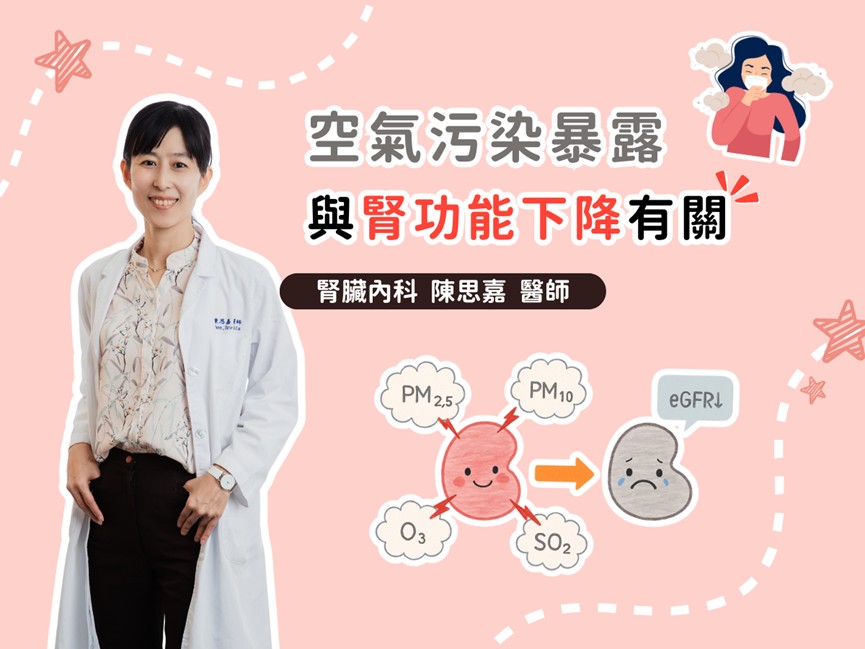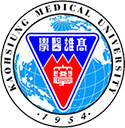-Kaohsiung Municipal Siaogang Hospital-

A 2007 study in Taiwan reported a chronic kidney disease (CKD) prevalence rate of 11.3%. While common causes such as diabetes, glomerulonephritis, and hypertension are well recognized, environmental toxins have also emerged as contributing factors. For high-risk populations—including individuals with diabetes, hypertension, hyperlipidemia, cardiovascular disease, a family history of kidney disease, use of herbal remedies, a history of acute kidney injury, older adults, those with obesity or metabolic syndrome, chronic painkiller use, smoking habits, or high uric acid levels—kidney function screening is strongly recommended.
Beyond traditional risk factors, increasing evidence suggests a potential link between air pollution and impaired kidney function. As global air quality worsens, the public is becoming more aware of its broader health implications, including cardiovascular, respiratory, and now renal complications. Though the study of air pollution’s impact on kidney function is still evolving, existing research—while limited and at times inconsistent—has pointed to possible correlations.
To investigate this further, our team integrated data from the Taiwan Biobank and the Taiwan Air Quality Monitoring Network, analyzing 26,032 participants. Multivariate analysis revealed that exposure to higher concentrations of fine particulate matter (PM2.5), coarse particles (PM10), ozone (O₃), and sulfur dioxide (SO₂), as well as lower concentrations of carbon monoxide (CO), nitric oxide (NO), and nitrogen oxides (NOₓ), were associated with reduced glomerular filtration rate (GFR). In particular, simultaneous exposure to pollutants like PM2.5 and PM10, ozone and sulfur dioxide, or combinations thereof, may further accelerate kidney function decline.
Prevention Strategies
To reduce risks associated with air pollution, both emission reduction and exposure avoidance are essential.
Reducing Emissions:
- Choose eco-friendly transport such as public transit, biking, or walking.
- Avoid burning incense or firecrackers.
- Conserve energy, go paperless, and embrace digital alternatives.
Minimizing Exposure:
- Avoid outdoor exercise when air quality is poor.
- Wear a mask when going outside.
- Wash hands, face, and nasal passages after returning indoors.
- Keep windows closed and use air purifiers when needed.
- Regularly clean carpets, sofas, and soft furnishings.
- Use a kitchen range hood while cooking.
- Avoid smoking.
Kidney Health Maintenance
To prevent kidney disease, follow the principle of “3 Highs, 3 Lows, 4 Don’ts, and 1 Avoidance”:
Three Highs:
- High fiber intake
- Plenty of fruits and vegetables
- Adequate water intake (unless there is edema)
Three Lows:
- Low oil
- Low salt
- Low sugar
Four Don’ts:
- Don’t smoke
- Don’t hold in urine
- Don’t stay up late
- Don’t take unprescribed or unknown medications (follow medical advice strictly)
One Avoidance:
- Avoid central obesity ("no tuna belly")
For Individuals with Chronic Kidney Disease
To slow disease progression:
- Maintain adequate calorie intake with a low-protein diet; aim for weight loss if overweight.
- Exercise regularly.
- Avoid smoking, betel nut chewing, and alcohol consumption.
- Follow prescribed medications to delay kidney deterioration and avoid nephrotoxic drugs such as NSAIDs.
